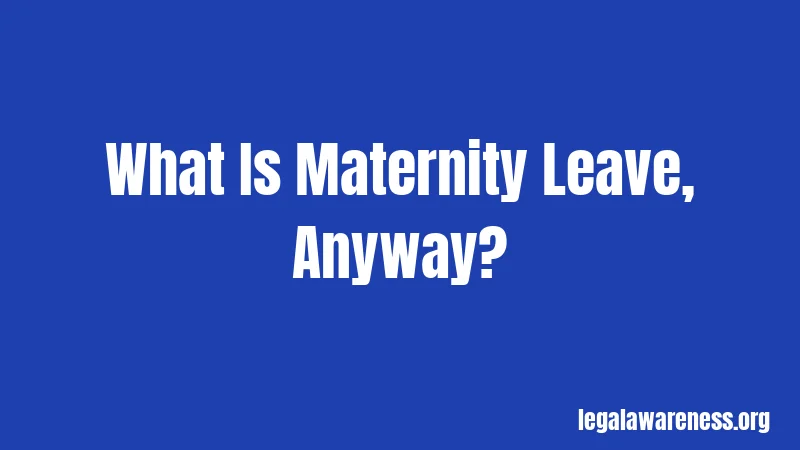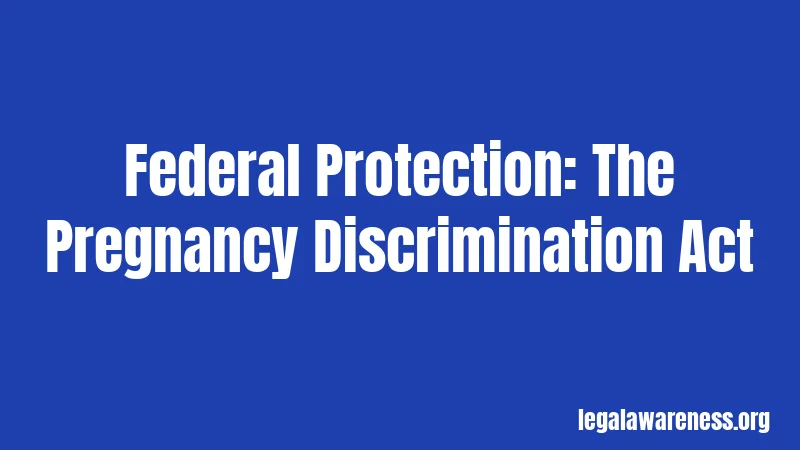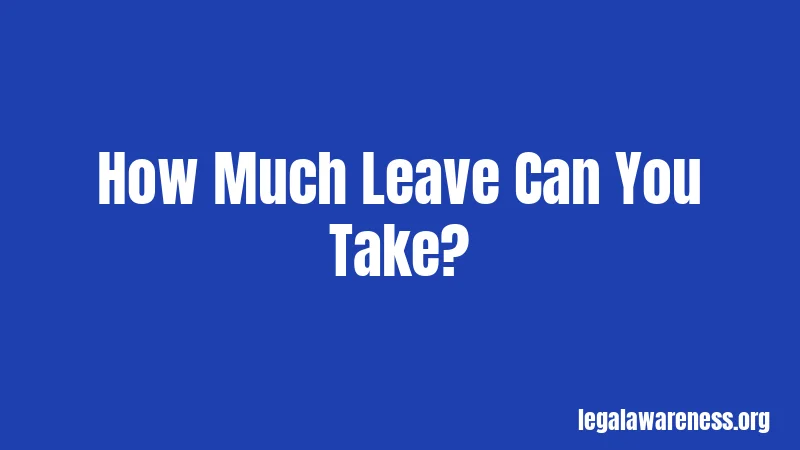Illinois Maternity Leave Laws (2026): What Every Parent Should Know
Most expectant parents in Illinois don’t know exactly what rights they have. They assume something, get surprised, and scramble to figure things out. Don’t let that be you. The good news? Illinois has some solid protections in place. The tricky part? You need to understand how they work.
Here’s what we’re going to cover. You’ll learn what maternity leave actually is in Illinois. We’ll talk about your legal rights, how long you can take off, and what happens when you return to work. By the end, you’ll know exactly where you stand.
What Is Maternity Leave, Anyway?

Okay, let’s start simple. Maternity leave is time off work when you’re pregnant, giving birth, or recovering from childbirth. It’s basically legal protection that says your job has to be there for you during this huge life event.
Think of it like this. Your employer can’t fire you or punish you for taking time off to have a baby. That’s the core idea. But the rules around how much time, how it’s paid, and what you need to do get more complicated. Keep reading and we’ll untangle it all.
The Two Big Laws You Need to Know
Illinois has two main laws protecting pregnant workers. Understanding both will save you a major headache later.
The first is the Pregnancy Discrimination Act (PDA). This is a federal law, so it applies everywhere in the United States, including Illinois. The second is the Illinois Pregnancy Leave Act. This is a state law that gives you extra protections on top of the federal law. Basically, you get double protection here. Pretty straightforward.
Federal Protection: The Pregnancy Discrimination Act

The PDA says employers can’t discriminate against you because you’re pregnant. That means no firing you, demoting you, cutting your pay, or treating you differently because of pregnancy. Makes sense, right?
Here’s what it covers. The PDA applies to companies with 15 or more employees. If you work for a smaller company, you might not be covered by this law (though Illinois has other protections we’ll talk about). The law also applies to job applicants. Your employer can’t refuse to hire you because you’re pregnant or might become pregnant.
The big thing about the PDA? It doesn’t actually guarantee you unpaid leave. You’re not automatically entitled to time off just because you’re pregnant. However, if your company offers leave for other medical conditions, they have to offer the same leave for pregnancy. If they give workers leave for a broken arm, they have to give pregnant workers leave too. See the difference?
The Illinois Pregnancy Leave Act: Your State Protection
Now here’s where Illinois goes further than federal law. The Illinois Pregnancy Leave Act is pretty cool for expecting parents. This law says you’re entitled to a reasonable amount of unpaid leave because of pregnancy, childbirth, or related medical conditions.
What counts as reasonable? That’s the question everyone asks. Illinois doesn’t set a specific number of weeks. Instead, it says the leave has to be reasonable based on the situation. Most people think this means somewhere between 8 and 12 weeks, but honestly, it depends on your specific circumstances. If you need more clarity, ask your employer or check with a lawyer.
Here’s something important. Unlike federal law, the Illinois act applies to employers with even fewer employees. You’re covered even if your company is on the smaller side. This is huge protection for Illinois workers.
How Much Leave Can You Take?

This is where people get confused. Let’s break it down into pieces.
Unpaid Leave Under Illinois Law: You can take reasonable unpaid leave. The law doesn’t set a hard limit, but most employers understand this to mean several weeks. Document everything if you need extended leave. Keep records of what your doctor says about your needs.
Paid Leave: Here’s the thing. Illinois doesn’t require employers to pay you during maternity leave. You don’t automatically get paid time off. However, many employers offer it voluntarily. Some use sick days, personal days, or dedicated parental leave. Check your employee handbook or ask your HR department what you have available.
Job Protection While You’re Gone: This is crucial. Your employer can’t fire you for taking maternity leave. When you come back, they have to give you your same job back or an equivalent job with the same pay and benefits. Your position is protected. That’s the law.
Taking Time Off: What You Actually Need to Do
Wondering what the process looks like in real life? Let me walk you through it.
First, notify your employer that you’re pregnant as soon as it’s practical. You don’t have to tell them immediately, but don’t wait too long. Somewhere around the second trimester is common. Check your employee handbook for their specific notification requirements.
Second, be clear about when you plan to take leave and how long you’ll be gone. Your employer might ask for written notice. They might ask you to use specific forms. Just give them what they ask for and keep copies for yourself.
Third, understand what benefits continue while you’re on leave. Your health insurance should keep running. Double-check with your HR department. You might have to keep paying your portion of premiums while on unpaid leave. Ask about this specifically.
Stay with me here. This part matters. If you’re covered under the federal Family and Medical Leave Act (FMLA), your employer might require you to use it for maternity leave. Your state leave rights actually work together with FMLA protections. You might be entitled to 12 weeks under FMLA plus additional state protections.
Penalties for Breaking These Laws
So what happens if your employer breaks the law? Let’s be clear about what you can do.
If your employer discriminates against you because of pregnancy, you can file a complaint with the Equal Employment Opportunity Commission (EEOC). That’s the federal agency that handles discrimination cases. There’s no filing fee. You can do this for federal law violations like the PDA.
For Illinois state law violations, you can file a complaint with the Illinois Department of Labor. You can also sue your employer directly in court. Honestly, this part gets complicated. If you think your rights have been violated, talk to an employment lawyer. Many offer free consultations.
What penalties can your employer face? They might have to rehire you with back pay. They might have to pay damages. They might have to cover your attorney fees. The penalties exist to actually protect you and discourage employers from breaking the law.
What About Private Disability Insurance?
This is where Illinois gets interesting. Some employers have private disability insurance for pregnancy and childbirth. This is sometimes called “pregnancy disability leave” or “maternity leave.” It’s extra protection on top of state law.
If your employer offers this, you might get paid leave for a certain number of weeks. The length varies. Some companies offer 6 weeks, some offer 12 weeks, some offer more. Check your benefits package to see if you have this. It’s honestly one of the best things to have.
Even if your employer doesn’t offer it, Illinois requires something called State Disability Benefit. This program might help you. The details are specific to your situation. Talk to your employer about whether you qualify.
Special Situations: What If Your Circumstances Are Unusual?
Not everything fits neatly into the basic rules. Here are some common special situations.
What if you have a high-risk pregnancy? You might need to stop working earlier than you expected. You’re still protected under the Illinois Pregnancy Leave Act. Your employer can’t fire you for needing earlier leave due to medical complications. Get medical documentation to support your need for leave.
What if you have complications after birth? Recovery sometimes takes longer than expected. You can still take reasonable additional leave under state law. Your job protection continues as long as the leave is reasonable. Don’t hide medical issues to protect your job. Your health comes first.
What if you’re adopting or using a surrogate? The Pregnancy Leave Act specifically covers pregnancy and childbirth. Adoption doesn’t automatically qualify. However, federal FMLA might cover adoption leave with some employers. Check with your HR department about what you’re entitled to for non-biological parenting situations.
What if your employer is tiny? Illinois protects workers at companies of all sizes under state law. Federal FMLA only applies to companies with 50 or more employees. So if you work somewhere small, you still have Illinois protections even without FMLA.
Returning to Work: What You Should Know
Okay, pause. This part matters. When you come back to work, your employer has to treat you right.
You get your same job back. You get the same pay, benefits, and working conditions. You can’t be demoted or moved to a worse position because you took maternity leave. Your employer can’t reduce your hours as punishment. Your job is protected.
What if the company restructured while you were gone? That’s a gray area. If the restructuring would have affected you anyway, they might not have to keep your exact position. But they can’t use the restructure as an excuse to get rid of you. This is where documentation matters. Keep all records related to the restructure and your return.
What about breastfeeding? Illinois also has protections for nursing mothers at work. Your employer has to give you break time for pumping and a private place to pump. This isn’t maternity leave, but it’s related protection you should know about.
What About Your Benefits While You’re Gone?
This trips up a lot of people. Let’s be super clear.
Your health insurance continues while you’re on maternity leave. Your employer has to keep you on their plan. You usually still have to pay your portion of the premium. Ask your HR department exactly how to pay while you’re not getting a paycheck. Some employers let you pay in advance. Some let you catch up when you return.
What about retirement benefits, vacation days, and sick days? It depends on your employer’s policy. Some companies keep accruing benefits while you’re on unpaid leave. Some don’t. Check your employee handbook or ask HR directly. Don’t assume. Get the answer in writing if you can.
Frequently Asked Questions
Can my employer fire me for taking maternity leave? No, absolutely not. That’s illegal under both federal and Illinois law. Firing you, demoting you, or punishing you because of pregnancy or maternity leave is discrimination. You’re protected.
Do I have to tell my employer I’m pregnant immediately? No, you can wait until it’s practical. Most people tell their employer around the second trimester, but you get to decide. Just give reasonable notice before your leave starts.
Am I guaranteed paid maternity leave in Illinois? Not automatically. Illinois doesn’t require employers to pay for maternity leave unless they voluntarily offer it. Many employers do offer paid leave, though. Check your employee handbook or ask HR.
What if my employer says I can’t come back to the same job? That’s illegal. Your employer has to give you your same job back or an equivalent position with the same pay and benefits. If they refuse, that’s a violation of your rights, and you should contact an employment lawyer.
How much leave can I take under Illinois law? A reasonable amount based on your circumstances. Most commonly, this means several weeks, often 8 to 12 weeks or more. There’s no hard cap set by law. If you need extended leave, get documentation from your doctor.
Do I need to file paperwork to get maternity leave protection? You don’t need to file anything with the state. You just need to notify your employer that you’re pregnant and need leave. Your employer might require specific forms or notice. Give them what they ask for.
Final Thoughts
You now know the real basics of maternity leave in Illinois. Here’s the takeaway. You have solid legal protections. Federal law protects you from discrimination. State law guarantees reasonable unpaid leave. Many employers offer paid leave on top of that.
Here’s my honest advice. Read your employee handbook before you tell your employer you’re pregnant. Know what benefits you have available. Write down important dates and keep records of conversations. When you’re ready to take leave, give written notice and get written confirmation from your employer about the details.
If something doesn’t feel right or you think your rights are being violated, trust that feeling. Talk to an employment lawyer. Many offer free initial consultations. You shouldn’t have to fight alone.
Congratulations on your pregnancy or upcoming parenthood. You deserve to take time to bond with your baby without losing your job. Illinois law is on your side. Stay informed, ask questions, and advocate for yourself.
